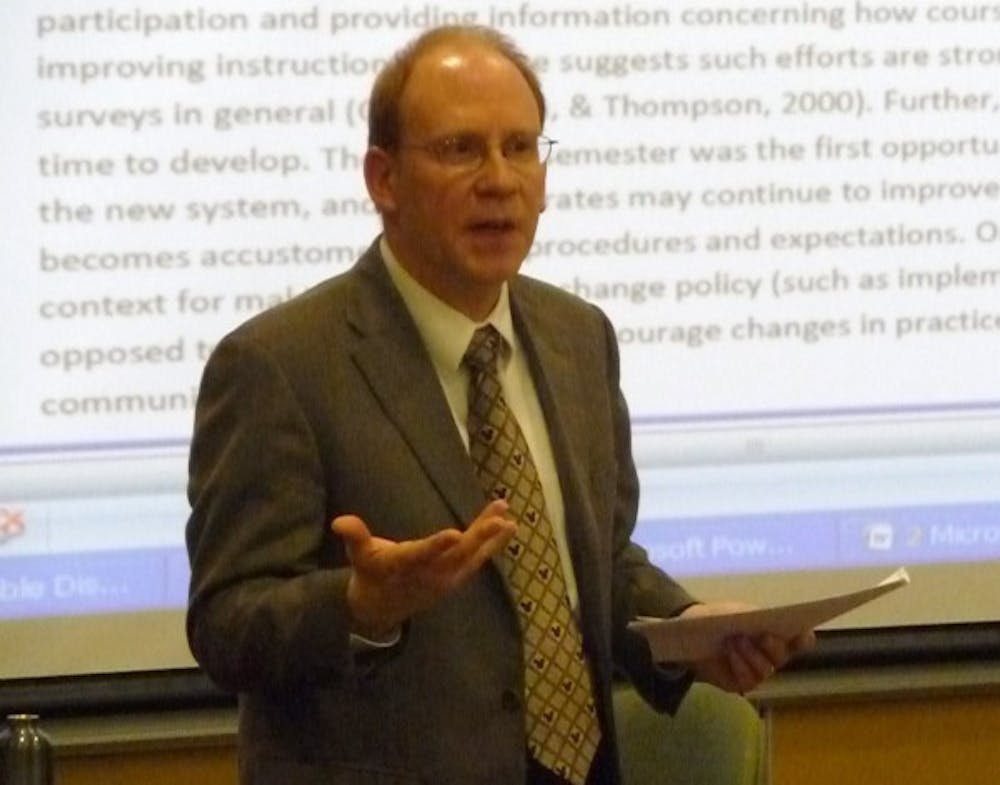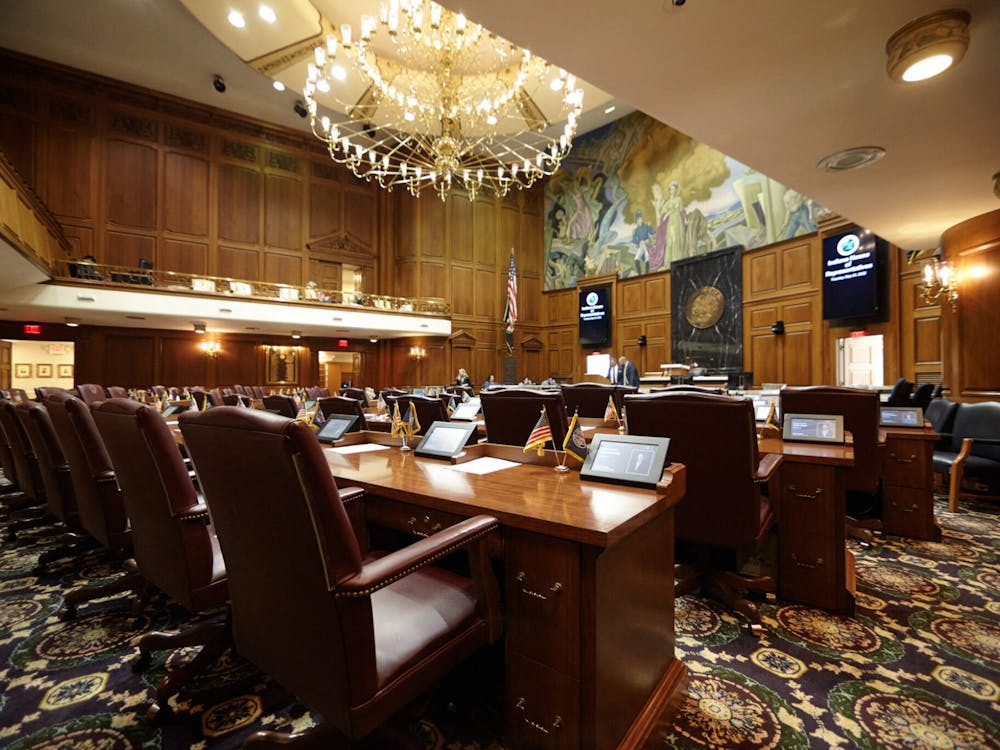In class or online, students don't care much about filling out course evaluations — the easy-to-fill-out documents that help determine faculty salary, promotion and tenure decisions.
A report to the University Senate on Thursday shows the average response rate for online evaluations in the fall was 55 percent, compared to an average 80 percent in Fall 2009 with the paper-based system.
Students in a focus group indicated they didn't have a clear understanding of what the findings are used for.
"They were apathetic towards the paper evaluations as well, and had not always read the questions but just marked bubbles to get them done," the report said.
Arguments have been made for and against the new online system, which was piloted this summer based on examples from other universities. For example, Stanford withholds grades from students who do not complete evaluations but also lets students see the results of the evaluations.
The University of Louisville offers a chance for students in each course with a greater than 40 percent response rate to receive a 3-credit hour course free.
Ball State students serving on the task force said they felt offering a couple extra credit points for participants was the best incentive.
The report showed that graduate-level courses had the highest response rate at 63 percent, followed by 100- and 200-level courses with a 55 percent response rate.
Brien Smith, associate dean of the Miller College of Business and author of the report, said in the document students needed some prompting to complete the evaluations.
"Having faculty discuss the importance of evaluations and how they are used with students, along with encouraging the students to complete the online evaluations, can improve response rates," the report said.
Even listing the evaluation as an assignment with no point value showed an increase in response rates at other universities, Smith said.
The report shows response rates for each department and college on campus. Honors College and the College of Sciences and Humanities had the most feedback at 70 and 56 percent, respectively.
During the Senate meeting, James Jones, assistant director of Unified Technology Support and member of the task force, explained that all the correspondence with students, such as reminding them to fill out the evaluations, come from the company Digital Measures, which manages the online evaluations.
Jones said he understood professors' concerns.
"Who gets to surf through who's evaluations?" he asked. "The default is that only the faculty can read their evaluations, but it can also be that the dean sees it."
Other issues discussed during the University Senate meeting:
- An NCAA evaluation committee will visit Ball State in the fall for an annual review. Ball State will also submit a report to the NCAA in April.
- The Bold Campaign raised more than $207 million, and 55 scholarships were made available for incoming freshmen studying in the Honors College. The campaign will continue until July 1 as scheduled.
- A committee is looking into a new Strategic Plan. Meetings began Wednesday.
- Campus Council reported on its recommendation that class rosters be changed to mention students' preferred name. This would accommodate GLBTQ and international students, and the students' given name would still be listed on official documents.
- Elections for the executive positions of University Senate, Campus Council, University Council and Faculty Council will take place at the April meetings. Council members may contact John Ledbetter to nominate faculty for the positions.





